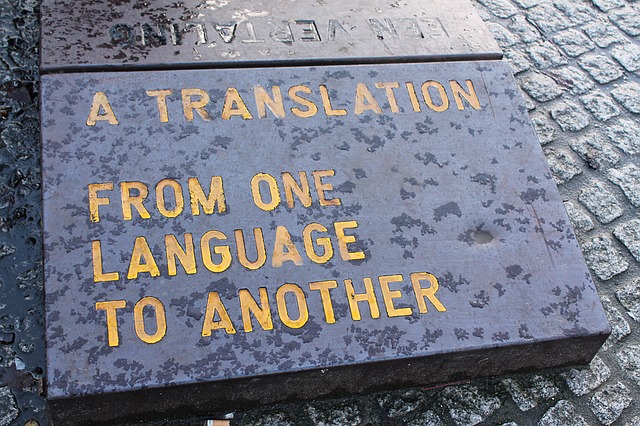The Future of Translation, Technology and the Fall of Language Barriers
Photo via Pixabay
The fear, or assumption, that technology will one day break down all language barriers and replace the need for anyone to learn a foreign language may not quite be an age old one, but it is something that those involved in all the intricacies of learning, studying, and teaching languages do digress on from time to time. It isn’t just about a fear of losing work, although, of course, that is an argument to factor into the discussion; there is a lot more at stake than having to potentially change a career.
We like to think we’re glass-half-full, optimistic thinkers, so here’s some reasons why we believe machines won’t ever fully take over our translation of languages, or at least we hope.
Word for word
If language were as simple as literally translating one word for another word, then this entire conversation would be over. Translation would be a simple copy and paste job in any of the internet’s finest language translation tools, and a vast amount of people would be out of work. But it’s not like that at all.
First off, there is the joy that is synonyms. Take the word simple as an example. Put this through Thesaurus.com, and here is what you get:
If you translate word for word, then, which synonym do you choose? Will you lose meaning? Mean something else entirely from the original text?
Then there is the translation itself. If we take the word decide and run it through Google Translate for Polish, this is what we get:
Which decide do we mean? And if the word is both a verb and a noun, perhaps even an adjective, how can we be sure if we take a literal word for word translation that we aren’t getting it entirely wrong?
So. Word for word translation doesn’t work. What’s next?
Knowing where your bread’s buttered
Because a computer is not going to catch the nuance of that particular idiom, or in fact any idiom that is run through it. Languages are colloquial, and are littered with idiomatic terminology that just does not translate if you try to do it literally.
What about business terminology. If we think about terms such as think outside the box, move the needle, or tiger teams, can you imagine the confusion that would cause? All we can picture is a poor, overwhelmed computer somewhere rocking a corner trying to establish what the tigers were doing in the boardroom in the first place, or working out which box it is that people usually think in.
We think it’s safe to say, that when it comes to the metaphorical nature of language, the way we say one thing when we mean something entirely different means that computers aren’t quite adept enough at interpreting all of our foibles.

Photo via Pixabay
Don’t look at me in that tone of voice
And how would a computer ever interpret that message? Would they attempt to correct it? Know that seeing a tone is usually something we do with colour, and that a tone of voice fluctuates with the emphasis behind what we’re trying to say? The short answer is no; how can a machine possibly pick up on nuances like sarcasm, flirtation, and all of the other alterations to the words we say that have entirely new meanings? Would computers learn to pun, or to use innuendo? How confused would you be if you were hit on by your tablet?
Which raises another point; to hit on is, thankfully, quite different from being hit, and yet if you’re a singer then a hit is exactly what you want. We’ve sort of gone back to our first point here, that you can’t translate something word for word without losing its meaning or confusing the point entirely. But the thing is as a speaker of language, we do that all the time, naturally, without even really considering it. Even when we are learning a new language we know, instantly, from the reaction of those around us when the words we’ve said are acceptable, or hysterically wrong. Computers simply cannot do that.
To cause offence
Because culture plays a huge part in our interpretation of language, what is socially acceptable and accepted in one country might be a thorough faux pas in another, and this is true of the language we use as well. A computer, no matter how clever, or well-programmed it may be, can never, or at least, not at this time, work out the complexities of what it is to be human enough to be able to perfectly interpret the meaning behind our every word.
Learning a new language? Check out our free placement test to see how your level measures up!
And perhaps the most important thing of all when it comes to languages, is good communication. We learn languages to better ourselves, it’s true, but also so that we can understand other people, cultures, ways of life; it isn’t just a matter of breaking a language barrier, it’s about breaking a societal and cultural barrier too. So no matter how good a computer is at passing the Turing Test, a communicator it is not.
So in short, whilst we embrace change and love all the language tools available to us, we don’t think it’s time to give up on learning new languages just yet.





